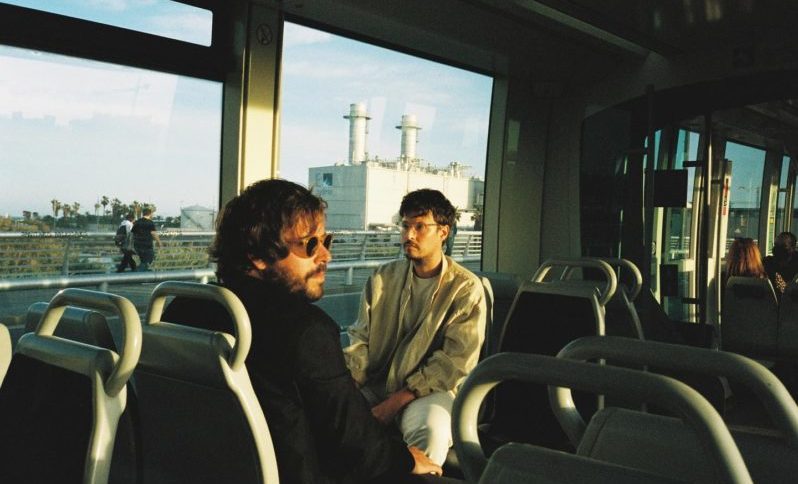With one eye fixed on nostalgia and the other on following the correct path, the one we all wish to tread, L’Últim Europeu’s second album teaches you to embrace the past and the present so that the future will embrace you. Over the course of 10 pop-rock songs that take influence from 90s and 2000s indie artists (Australian Blonde, Los Planetas, Antònia Font, Mishima, Pau Vallvé), the cousins discuss love, friendship, growth and maturity. Jordi Batista (a.k.a. Chico Jorge) has achieved this, topped with the noise of guitars, which converts L’Últim Europeu’s pop formula into something more enlightened and profound. Corredor Mediterrani speaks of the three cousins’ (Lacasa, Josep and Rafa) move from Valencia to Barcelona and reflects on their experiences, individual and shared, past, present and future.
L’Últim Europeu was started by the Lacasa twins during their stay in Poland and the Czech Republic, maturing further in the cities of Barcelona and Valencia. The group debuted in 2019 with their first album under the name Naus espacials i altres objectes per identificar (Autoeditado, 2019). They were able to present this album in different spaces and events in Catalonia and Valencia, gathering a substantial following. In 2020 they published their single ‘Eme’.
Their second album kicks off with its title song, bringing an energy into gear that we all need: the desire to live. With a somewhat epic tone, ‘Corredor Mediterrani’ illustrates the day to day tension of the need to escape monotony. From this point on, the album presents songs aligned on three temporal axes: those that look to the past, those that deal with the future, and those that build facing the future. In the first group we find songs like ‘Vents del Nord,’ whose melancholic air links back to the group’s residency in Poland and the Czech republic, where, as well as popularising their music, they learned to manage, among other things, absence, memory and forgetting.
We also have ‘Ctrl + z’: as the name implies, dealing with the fantasy of going back in time to fix the mistakes of our past. The most nostalgic of all is probably ‘Gesmiler’: a journey through teenage years. Trips to grandma’s house, bicycles, the smell of jasmine. It is a song that recommends a return to the simplicity of those days to improve our present.
The group also reflects on the present, suggesting that we say “ I love you” more.
‘Estic per tu’ captures that sentiment, a declaration not just of love but of intentions. With an almost innocent pop sound, the cousins postulate that manifesting love is almost as important as feeling it. Following this romantic theme, ‘Tard’ paints a picture of those moments of clarity when you understand why you love someone, why a relationship works and how you maintain it day to day. Contrastingly, ‘Empastre’ highlights how one can hate the present. Charismatic and generational, it tells the story of a night out with its subsequent morning, paying tribute to friends, bars, plans and the lighthouses that guide us to keep going forward in spite of difficulties.
Following all these comes the last group of songs, projections for the future. ‘Carnaval de Venècia’, for example, recommends that we construct our identity without masks or façades: being natural and true to ourselves. On the other hand ‘Premi de muntanya’, underlines the importance of obtaining small victories on our rise to maturity. The last song in the album ‘Salt d’altura’, is a cry for the building of a better world and calling for resistance and not giving up.
Report by Danny Weller
Article copyright ‘24/7 Valencia’
Corredor Mediterrani: https://www.youtube.com/watch?v=kM39YGSnPug&feature=youtu.be
Pre-save: https://orcd.co/save_corredormediterrani
L’Ultim Europeu: https://www.instagram.com/lultimeuropeu/
Spotify: https://open.spotify.com/artist/2EJ6cIHivfIWQqJ45qRmua?si=d6BVNQf_QJCrVMbLX8blIQ
Related Post
This site uses Akismet to reduce spam. Learn how your comment data is processed.


























Leave a comment